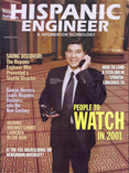The Numerical Algorithms Group, a leader in computational software and high performance computing services to users in major academies, Global 500 companies, and the world’s leading supercomputing sites among others, announces that it will mark its 40th anniversary by expanding its student prize program, with a new awards intended to cultivate the next generation of numerical software talent worldwide.
“Nearly every challenge we face today – global warming, developing energy sources to sustain economic growth worldwide, creating vaccines for the pandemics of today and tomorrow, to name a few - will be solved, in part, with innovative approaches to numerical computing and the most up to date processor platforms," says Rob Meyer, NAG’s chief executive officer.
"Helping with this has been NAG’s mission since our inception, and by extending the NAG Awards we hope to help institutions focus on the development of numerical code with direct application in many fields and to attract the talent that will support the processor technologies of tomorrow, ” Meyer says.
Originally an outgrowth of several United Kingdom universities, the Numerical Algorithms Group is an Oxford, UK- headquartered not-for-profit numerical software development organization that collaborates with world-leading researchers and practitioners in academia and industry. Today, NAG maintains offices in Manchester, Chicago, Tokyo and Taipei, and a worldwide network of support partners.
Commenting on NAG’s influence on his career and on that of others at the forefront of computing and scientific research, Stuart Feldman, Google vice president of engineering, says, “I have fond memories of visiting NAG early in my career, having fascinating discussions about software, numerical and scientific programming. The quality and passion of NAG’s people and their drive to make the life of scientists better, and to take advantage of the newest and best results in the math software field was as clear then as it is now.
"My own involvement originally focused on my interest in Fortran and in my own astrophysics research. This expanded over the years to general interests in arithmetic and algebra. As I moved into other areas of computing, it was very useful to reference the needs of the classic scientific community. I am now at Google, with computational resources of a different sort but also of a magnitude I did not imagine 30+ years ago. Yet many of the old problems of reliable computing at scale remain.
"NAG, in addition to being a major contributor to important international standards including Fortran 90 and IEEE arithmetic, has perhaps made its biggest contribution by creating a reliable shared base for scientific computing - a basic set of software that could be depended on, that covered the basic needs of much of classic numerical analysis and that improves over time and on an evolving set of platforms.”
The new NAG 40th Anniversary Awards are intended to help nurture the next generation of leaders in science and computing like Google’s Stu Feldman. In the spirit of NAG’s four decades of collaboration with leaders in computing, academia and industry, NAG will be inviting departments, from institutions across the world, to become involved with the student prizes. Awards will be offered for the best performances in a Masters of Science program, best projects and/or best numerical solutions.
Other NAG funded prizes include The Wilkinson Prize for Numerical Software; the NAG Prize in Applied Numerical Computing and the NAG Prize in Mathematical Finance
http://www.nag.com/about/student_awards.asp
The Numerical Algorithms Group (NAG) is dedicated to applying its expertise in numerical engineering to delivering high-quality computational software and high performance computing services. For almost 40 years NAG experts have worked closely with world-leading researchers in academia and industry to create powerful, reliable and flexible software which today is relied on by tens of thousands of individual users, as well as numerous independent software vendors. As a not for profit company, NAG reinvests any surpluses on the research and development of its products and services, its staff and fostering new numerical and scientific talent.

